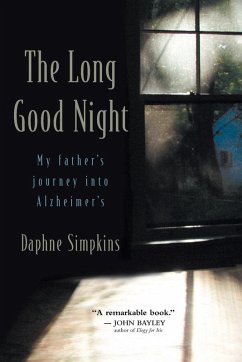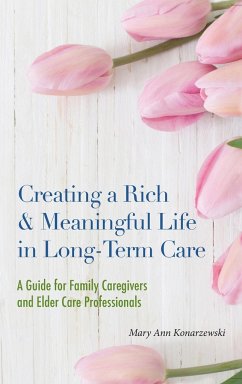As more and more people are discovering, Alzheimer's disease is the worst kind of thief. Over time, it robs those who suffer from it of the treasure of their memories and the sharpness of their minds. In The Long Good Night Daphne Simpkins chronicles the slow, sometimes heartbreaking decline of her father from the disease, but also contradicts the prevailing opinion that caregivers can experience only suffering and chaos during this difficult season. As Simpkins writes about what she calls her father's disappearing act, she illuminates the tremendous toll that this disease takes. Alzheimer's doesn't happen to one person, she explains. It claims the community of people who love the person with the disease. The care is constant, the demands profound. But her book is far more than a recounting of the long journey into the deep night of the disease. It is a loving memoir of a good father and a good man. It is a powerful portrait of a close family whose bonds are strained but ultimately strengthened by the challenge of caring for him. And, perhaps most surprisingly, it is a remarkably uplifting account of that experience. and humor. The humor arises naturally, almost miraculously, out of the stories Simpkins tells, a series of vignettes about her family's daily life. Alzheimer's is admittedly a dark subject, but Simpkins brings as much natural light and levity to it as circumstances allow. The Long Good Night is a memoir about love rather than an elegy about a disease, Simpkins says. It will give caregivers cause for honest hope, and its many other readers a wonderfully nuanced story of love and laughter amid the ruins of illness -- a story that both illuminates the tragedy of Alzheimer's and powerfully transcends it.
Hinweis: Dieser Artikel kann nur an eine deutsche Lieferadresse ausgeliefert werden.
Hinweis: Dieser Artikel kann nur an eine deutsche Lieferadresse ausgeliefert werden.









